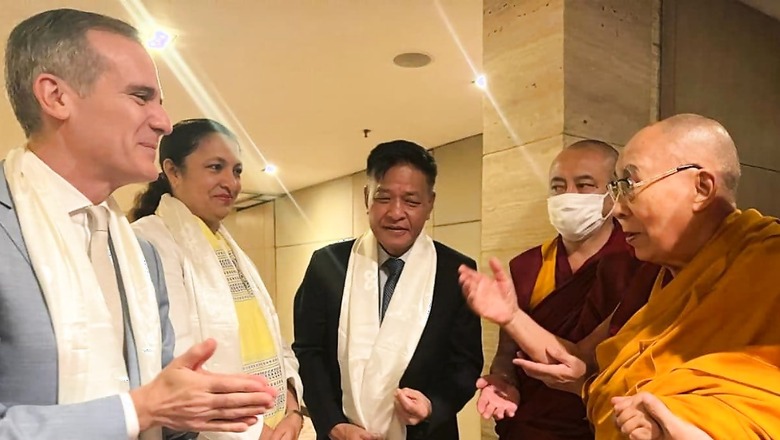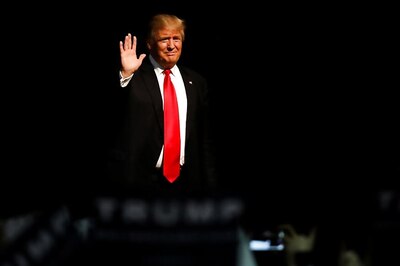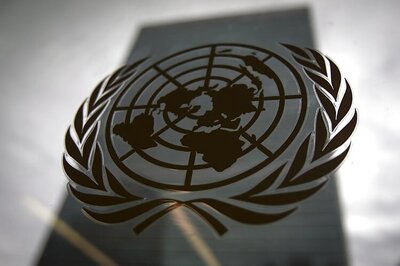
views
In a significant development, US Under Secretary Uzra Zeya, who serves as the Special Coordinator for Tibetan Issues in the Biden administration, met with the 14th Dalai Lama in Delhi on Sunday. Accompanied by a high-level US delegation, the meeting is expected to draw a sharp reaction from the Chinese government. The gathering also involved senior officials from the Tibetan government in exile.
The meeting has drawn a sharp criticism from China calling it in interference in its domestic affairs.
Wang Xiaojian, spokesperson of Chinese Embassy in Delhi in a series of tweets said “Xizang(Tibet) affairs are purely internal affairs of China and no external forces have the right to interfere”. Questioning the very concept of US Special Coordinator for Tibet Issues” Xiaojian called it “pure offense and a move of political manipulation to interfere in China’s internal affairs” and added that, “China has always been firmly opposed to this and has never recognized it.”
The Chinese spokesperson also said “The so-called “Tibetan government-in-exile” is an out-and-out separatist political group and an illegal organization completely in violation of China’s Constitution and laws.”
@UnderSecStateJ @USAmbIndia Xizang(Tibet) affairs are purely internal affairs of China and no external forces have the right to interfere. China firmly opposes any form of contact between foreign officials and the "Tibetan independence" forces.— Wang Xiaojian (@ChinaSpox_India) July 10, 2023
The US special envoy had also met Dalai Lama in Dharamsala in Himachal Pradesh during her India visit in May 2022. At that time also Chinese foreign ministry had criticised the meeting, calling it an interference in China’s internal affairs. China’s foreign ministry spokesman Zhao Lijian had told media, “The US should earnestly abide by its commitment that Tibet is a part of China” and should not provide any support for separatist activities by “The anti-China Dalai clique”.
China has consistently expressed reservations about high-ranking US officials engaging with the Dalai Lama, whom they view as a secessionist leader. However, the Dalai Lama, a Nobel laureate widely respected across religions, has maintained that he seeks autonomy for Tibet rather than independence from China.
On Saturday, while talking to reporters in Kangra, Himachal Pradesh, the Dalai Lama said, “We are not seeking independence, we have decided since many years that we remain the part of People’s Republic of China”. He also indicated that Chinese side is willing to engage with him. “China is changing and has now realised that the Tibetan people are very strong and in order to deal with the Tibetan problem, they want to have contact with me and I am also ready.”
The US has supported the Tibetan people’s aspirations for religious freedom, cultural preservation and autonomy. However, China considers Tibet an integral part of its territory and has criticised foreign nations’ involvement in Tibetan affairs. This meeting aligns with past engagements between senior US officials and representatives of the Tibetan government in exile.
Secretary of State Antony Blinken’s meeting with a representative of the Dalai Lama during his visit to Delhi in July 2021 drew similar criticism from Beijing. In 2016, the Dalai Lama had met former US President Barack Obama in Washington.
Following her meeting with the Dalai Lama in 2022; in an interview with the Tibet TV, Zeya had expressed commitment to working with the international community and to “engaging PRC officials on advancing the human rights of the Tibetan people and preserving their unique historical religious, cultural and linguistic heritage”.
The latest discussions between the US delegation and the Dalai Lama are expected to have covered a range of topics, including the current situation in Tibet, efforts to promote dialogue with China, and ways to enhance support for the Tibetan cause on the global stage.
The meeting between US officials and the Dalai Lama, despite efforts to improve US-China relations, adds to the complexity of US diplomacy.
In a short span of last 20 days, the US had sent two senior officials, Secretary of State Antony Blinken and US Treasury Secretary Janet Yellen to China. The visits are being seen as an outreach by the US to bridge the fast depleting trust, and keep a line of communication with the Chinese government. Both the secretaries had cancelled their February trip to China in the wake of “Chinese Spy balloon” spotted over the US. This followed a panic in the US administration, with the US scrambled F-22 fighter jet shooting down the balloon leading to a sharp protest from China, which maintained that the balloon was a civilian research airship blown way off course by fierce winds.
After almost three months of hectic parlays, finally, Blinken travelled to China on June 19-20 and held significant meetings in Beijing, with President Xi Jinping, China’s top diplomat Wang Yi, foreign minister Qin Gang and other high-ranking officials.
While Tibetan people keep their demand of homeland alive and kicking, India, home to a large Tibetan refugee community, has historically provided sanctuary to the Dalai Lama and played a significant role in preserving Tibetan culture and supporting the Tibetan cause.




















Comments
0 comment